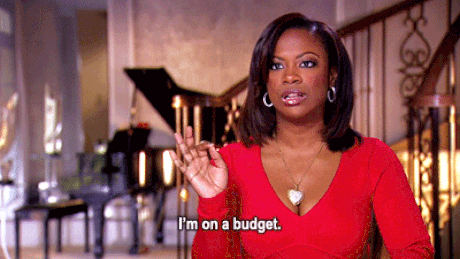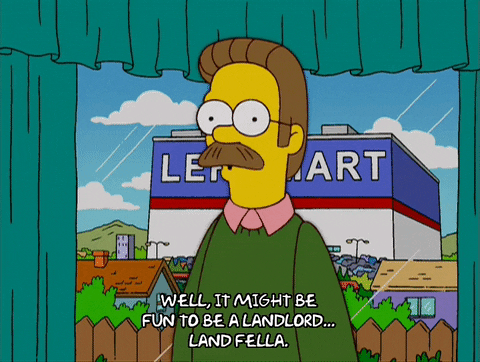
Let’s be honest, buying your first home can feel quite out of reach to many of us – no matter how long we abstain from avo toast. But if you’re one of the lucky few with a bit of cash saved up, and you’re willing to think a little outside the box, you could be closer to homeownership than your noggin thinks.
To get some insider knowledge, we spoke to Claire Scott, Head of Mortgages Strategy and Products at Westpac, about some alternative ways you can climb onto the property ladder.

Find a fixer-upper
The first option is to be open to compromising on the actual property you want to buy. If sacrificing location is out of the question, then consider a different type of property. Perhaps it’s a bit retro and older than you would have liked, or maybe it’s only got one bedroom instead of two but has the potential to extend or renovate down the track.
“Try to think about your first property with a longer-term view. For most people, your first home probably won’t be your forever home, but over time it might help you get there,” Scott says.
“Consider properties that could give you some flexibility down the track, like the opportunity to upgrade or renovate and potentially add value.”
Of course, even a shabby-chic fixer-upper can still be fairly exxy in some metro cities – and remember it will cost additional moula to renovate. The flip side of this is that renovations could add more value to your home – jackpot – but this strategy only works if your budget checks out. You definitely don’t want to overcapitalise and spend more on renos than the actual value you’ve added to the property.
Before you dive in, make sure you get all the important building and pest inspections done to really understand what you’re buying and any limitations there may be on future works. Some properties can be fixed-up and are worth the trouble – but some are just not. It’s worth getting some professional advice, like from a builder, if you’re considering going down this route.

Rentvesting
If you haven’t heard of this term yet – take note.
“Rentvesting is where you rent in the suburb you want to live and buy an investment property that works within your budget,” Scott explains. “This can be a beneficial way for some people to get a foot on the property ladder while continuing to live the lifestyle they want in an area they love.”
If you’re open to buying in an area that’s further afield and continuing to rent, this could help open up more options that fit within your budget.
“Many Australians are eager to get into the property market,” Scott tells us. “Buying an investment property where you might be more willing to compromise on things like location or the type of property could help open up more options, like looking slightly further afield or considering areas that are considered more ‘up-and-coming’.”
“If you are thinking of buying an investment property, it’s important to remember you’ll be managing tenants and will need to factor the impacts this could have on your cashflow, as well as other costs like property maintenance and tax requirements into your budgeting. You will also need to consider any additional expenses associated with your rental property,” added Scott.
So, what are some signs that a neighbourhood could be a worthy investment? Keep an eye out for things like new residential developments or infrastructure projects, like public transport, which can sometimes be signs of an emerging area. You’ll want to also think about the rental demand in the area, that is – will you be able to find tenants, and is the price of rent in line with your budget and expectations?

Get out of town
If there’s one good thing to come out of the pandemic, it’s that we’ve now well and truly proved that flexible and remote working can work. And some young homebuyers are realising that they’re no longer limited to living in expensive and crowded cities to be close to work.
Since COVID hit in 2020, there has been a steady exodus from major cities into regional towns that offer more spacious living options and still maintain their jobs. According to ABS data, 11,800 Aussies moved away from capital cities in the March quarter, the largest quarterly net loss on record.
More space, less traffic and more property options – what’s not to love? Obviously moving from a big city to a regional town is a huge shift, and a big decision – but something to consider if you’re up for a change.
If you’re considering buying a property to either live in or invest in, it’s important to chat to the experts and arm yourself with as much knowledge as possible. You’re going to want to think about things like your financial situation and then your borrowing capacity, yes scary adulting things, but don’t worry, you can make a start by using Westpac’s online mortgage calculator. With all of this in mind, you can start your property search with more confidence and a realistic budget in mind.
This information is general in nature and has been prepared without taking your objectives, needs and overall financial situation into account. For this reason, you should consider the appropriateness of the information to your own circumstances and, if necessary, seek appropriate professional advice.
Conditions, credit criteria, fees and charges apply. Credit provided by Westpac Banking Corporation ABN 33 007 457 141 AFSL and Australian credit licence 233714.
The taxation position described is a general statement and should only be used as a guide. It does not constitute tax advice and is based on current tax laws and their interpretation







